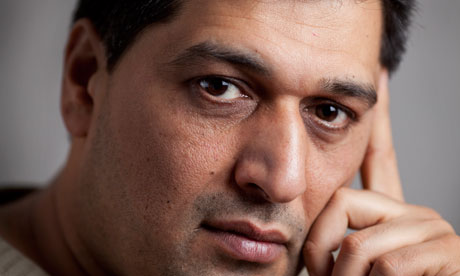"It's About Flow: A Dozen Basic Guidelines For Educators"
Mihaly Csikszentmihalyi
Mihaly Csikszentmihalyi
http://paxonbothhouses.blogspot.com/2013/12/its-about-flow-dozen-basic-guidelines.html
(How to pronounce Mihaly Csikszentmihalyi: https://www.youtube.com/watch?v=j0cMiX4sMvI)
(How to pronounce Mihaly Csikszentmihalyi: https://www.youtube.com/watch?v=j0cMiX4sMvI)
***
Why "Psychological Androgyny" Is Essential for Creativity
 Despite the immense canon of research on creativity – including its four stages, the cognitive science of the ideal creative routine, the role of memory, and the relationship between creativity and mental illness – very little has focused on one of life's few givens that equally few of us can escape: gender and the genderedness of the mind.
Despite the immense canon of research on creativity – including its four stages, the cognitive science of the ideal creative routine, the role of memory, and the relationship between creativity and mental illness – very little has focused on one of life's few givens that equally few of us can escape: gender and the genderedness of the mind.In Creativity: The Psychology of Discovery and Invention (public library) – one of the most important, insightful, and influential books on creativity ever written – pioneering psychologist Mihaly Csikszentmihalyi examines a curious, under-appreciated yet crucial aspect of the creative mindset: a predisposition to psychological androgyny.
In all cultures, men are brought up to be “masculine” and to disregard and repress those aspects of their temperament that the culture regards as “feminine,” whereas women are expected to do the opposite. Creative individuals to a certain extent escape this rigid gender role stereotyping. When tests of masculinity/femininity are given to young people, over and over one finds that creative and talented girls are more dominant and tough than other girls, and creative boys are more sensitive and less aggressive than their male peers.
Illustration by Yang Liu from Man Meets Woman, a pictogram critique of gender stereotypes
Csikszentmihalyi points out that this psychological tendency toward androgyny shouldn't be confused with homosexuality – it deals not with sexual constitution but with a set of psychoemotional capacities:
Psychological androgyny is a much wider concept, referring to a person’s ability to be at the same time aggressive and nurturant, sensitive and rigid, dominant and submissive, regardless of gender. A psychologically androgynous person in effect doubles his or her repertoire of responses and can interact with the world in terms of a much richer and varied spectrum of opportunities. It is not surprising that creative individuals are more likely to have not only the strengths of their own gender but those of the other one, too.
Citing his team's extensive interviews with 91 individuals who scored high on creativity in various fields – including pioneering astronomer Vera Rubin,legendary sociobiologist E.O. Wilson, philosopher and marginalia champion Mortimer Adler, universe-disturber Madeleine L'Engle, social science titan John Gardner, poet extraordinaire Denise Levertov, andMacArthur genius Stephen Jay Gould – Csikszentmihalyi writes:
It was obvious that the women artists and scientists tended to be much more assertive, self-confident, and openly aggressive than women are generally brought up to be in our society. Perhaps the most noticeable evidence for the “femininity” of the men in the sample was their great preoccupation with their family and their sensitivity to subtle aspects of the environment that other men are inclined to dismiss as unimportant. But despite having these traits that are not usual to their gender, they retained the usual gender-specific traits as well.
Illustration from the 1970 satirical book I’m Glad I’m a Boy! I’m Glad I’m a Girl!
Creativity: The Psychology of Discovery and Invention is a revelatory read in its entirety, featuring insights on the ideal conditions for the creative process, the key characteristics of the innovative mindset, how aging influences creativity, and invaluable advice to the young from Csikszentmihalyi's roster of 91 creative luminaries. Complement this particular excerpt with Ursula K. Le Guin on being a man – arguably the most brilliant meditation on gender ever written, by one of the most exuberantly creative minds of our time.

 In all cultures, men are brought up to be “masculine” and to disregard and repress those aspects of their temperament that the culture regards as “feminine,” whereas women are expected to do the opposite. Creative individuals to a certain extent escape this rigid gender role stereotyping. When tests of masculinity/femininity are given to young people, over and over one finds that creative and talented girls are more dominant and tough than other girls, and creative boys are more sensitive and less aggressive than their male peers.
In all cultures, men are brought up to be “masculine” and to disregard and repress those aspects of their temperament that the culture regards as “feminine,” whereas women are expected to do the opposite. Creative individuals to a certain extent escape this rigid gender role stereotyping. When tests of masculinity/femininity are given to young people, over and over one finds that creative and talented girls are more dominant and tough than other girls, and creative boys are more sensitive and less aggressive than their male peers.


























 d
d











